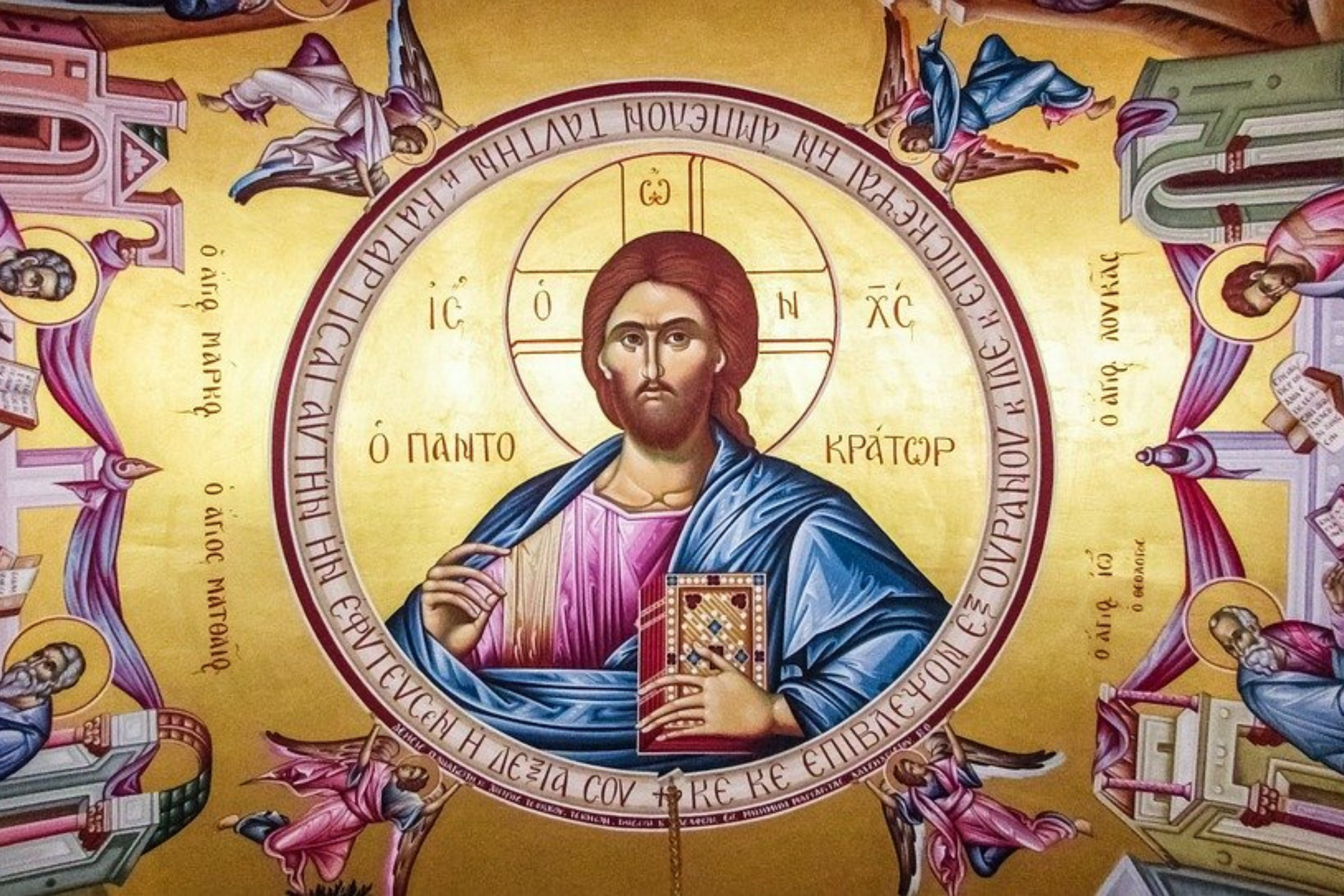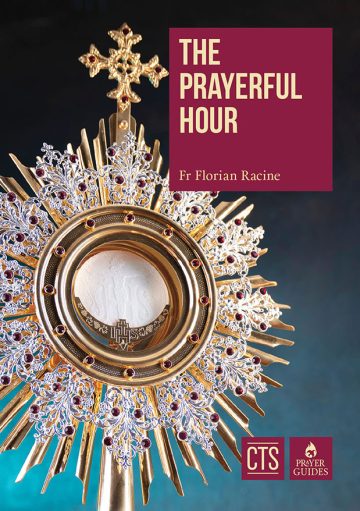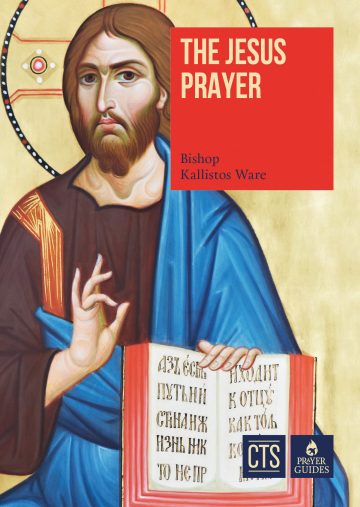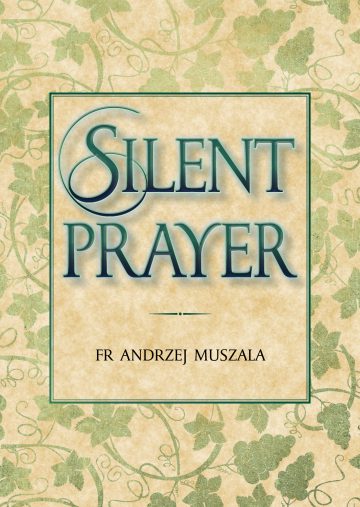‘Lord, teach us to pray.’ (Lk 11:1), the apostles said to Jesus. It is a request that all of us make to God. How are we to enter into the mystery of living prayer? How can we advance from prayer repeated by our lips – from prayer as an external act – to prayer that is part of our inner being, a true union of our mind and heart with the Holy Trinity? How can we make prayer not merely something that we do, but something that we are? For that is what the world needs: not persons who say prayers from time to time, but persons who are prayer all the time.
When I was about twelve years old, I heard a story in a sermon that I have never forgotten. It is, I believe, a story recounted by the Curé d’Ars, but the preacher did not mention his name. Once there was an old man who spent several hours each day in church. ‘What are you doing there?’ his friends inquired. ‘I’m praying,’ he replied. ‘Praying!’ they exclaimed. ‘There must be a great many things that you want to ask from God.’ With some indignation the old man responded, ‘I’m not asking God for anything.’ ‘What are you doing, then?’ they said. And the old man replied, ‘I just sit and look at God, and God sits and looks at me.’
At the age of twelve, I thought that an admirable description of prayer, and I still think so today. But how are we to acquire prayer in this deep sense, prayer of simple gazing, prayer in which there is a personal encounter between myself and God? How shall we begin?
In answer to the appeal of his disciples, ‘Teach us to pray’, Christ gave them the Lord’s Prayer; and this is indeed the model for all our praying. Yet, next to the Lord’s Prayer used by Christians everywhere, there is a further way of praying that is particularly commended within the Orthodox Church to all who seek living, inner prayer; and that is the Jesus Prayer. This is a short invocation, frequently repeated, most commonly in the form ‘Lord Jesus Christ, Son of God, have mercy on me.’ ‘The brethren of Egypt’, said St Augustine concerning the early monks, ‘offer frequent prayers that are very brief and suddenly shot forth.’
The Jesus Prayer is precisely such an ‘arrow prayer’. Another ‘arrow prayer’, used, for example, in the movement of Fr John Main, is the phrase Maranatha, ‘Our Lord, come’ (1 Co 16:22). The Jesus Prayer differs from this in being centred specifically on the Holy Name ‘Jesus’, and therein lies its distinctive value. Used faithfully, as a regular part of our life in Christ, the Jesus Prayer can indeed bring us to the sense of the Divine Presence of which the old man spoke: ‘I just sit and look at God…’
The four ‘strands’
‘Lord Jesus Christ, Son of God, have mercy on me.’ The Jesus Prayer is brief and concise – ten words in English, only seven in Greek or Russian – yet at the same time it is remarkably complete. Within this one short sentence we may find combined four ‘strands’ or constituent elements:
- the cry for mercy;
- the discipline of repetition;
- the quest for stillness (hesychia);
- the veneration of the Holy Name.
Prayer of the heart
It is customary in Orthodoxy, as in Western Christianity, to distinguish three levels of prayer: of the lips, of the mind, and of the heart. This threefold distinction applies in particular to the Jesus Prayer.
(1) To begin with, the Jesus Prayer, like any other, is a prayer of the lips, an oral prayer.
(2) Yet prayer said only with the lips is obviously not true prayer. The mind, with its power of attention, needs also to be involved. We may recall the admonition of John Climacus:
“Contain your mind within the words of prayer.”
So the Jesus Prayer grows gradually more inward. Yet we are not to be too quick in giving up the actual recitation of the words, whether spoken aloud or formed silently within us.
(3) Finally, by the grace of God, the mind is united with the heart, so that our prayer becomes ‘prayer of the heart’ or, more exactly, ‘prayer of the mind in the heart‘.
By ‘heart’, in this context, Orthodox writers do not mean primarily the emotions and feelings, but the spiritual centre of the total human being. The heart, as well as being a physical organ in our chest, represents symbolically the focal point of our personhood as created in the image and likeness of God.
The heart is thus the ground of our being, the root and source of our inner truth. It includes the emotions, but more significantly it comprises our will, our reason, and also the higher visionary faculty known in Greek as the nous, whereby we apprehend the glory of God. In the words of Theophan the Recluse,
“The heart is the innermost self, or spirit. Here are located self- awareness, the conscience, the idea of God and of one’s complete dependence on Him, and all the eternal treasures of the spiritual life.”
As well as being the centre of our created personhood, the heart is also the point of encounter between each created person and the uncreated God. It is the gateway to self-transcendence, the place of divine indwelling.
“Within the heart are unfathomable depths” it is stated in the Spiritual Homilies attributed to St Macarius.
“…The heart is Christ’s palace: there Christ the King comes to take His rest, with the angels and the spirits of the saints, and He dwells there, walking within it and placing His Kingdom there .”
‘Prayer of the heart’, therefore, in Orthodox writings means not just ‘affective prayer’ in the Western sense but prayer of the entire human person, prayer in which body, soul and spirit are all participating.
Moreover, since the heart is the meeting-place with God, prayer of the heart denotes not simply my prayer but the prayer of Christ in me. In St Paul’s words,
“It is no longer I who live, but Christ lives in me” (Ga 2:20)
Lord Jesus Christ, Son of God, have mercy on me, a sinner.
 This blog is an extract from The Jesus Prayer by Bishop Kallistos Ware. The Jesus Prayer is the most popular devotional prayer in the Orthodox Church and increasingly popular in the West. It is a simple and direct method of invoking the mercy of Jesus Christ by repeating his Holy Name.
This blog is an extract from The Jesus Prayer by Bishop Kallistos Ware. The Jesus Prayer is the most popular devotional prayer in the Orthodox Church and increasingly popular in the West. It is a simple and direct method of invoking the mercy of Jesus Christ by repeating his Holy Name.





